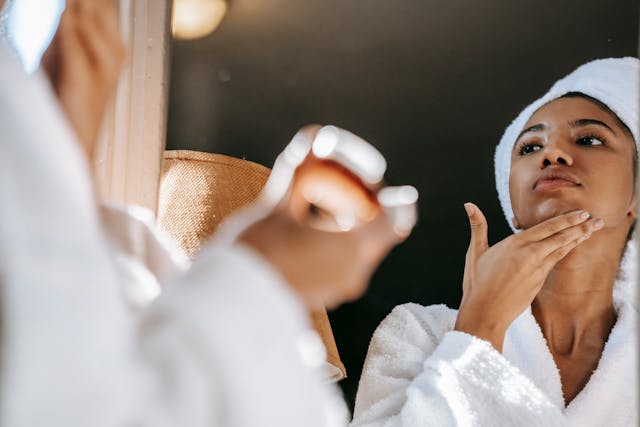MARCH 10, 2024
NAVIGATING MARKET ENTRY POINTS FOR AFRICA'S BEAUTY INDUSTRY

As the cosmopolitan domain keeps extending its reach globally, there emerges an escalating curiosity to delve into the expansive potential lying within the African market. When strategising market entry, it becomes imperative to fathom the intricate tapestry of the African beauty landscape. With a populace exceeding 1.3 billion individuals spread across 54 nations, the inclinations towards beauty, cultural subtleties, and purchasing prowess exhibit substantial variance. Nations such as Nigeria, Egypt, and South Africa have solidified their positions as pivotal players and significant gateways for novel and existing brands, while others like Kenya, Ethiopia, Senegal, and Tanzania are gradually gaining momentum.
Recent data underscore the promising expansion of the African beauty and personal care sector. According to industry prognostications, by 2024, the market is poised to burgeon to $65.93 billion, with skincare and personal care registering notable demand. Locally, revenue forecasts for the Nigerian Beauty and Personal Care domain, being the largest, project a $9.71 billion milestone in 2024, $7.02 billion for the Egyptian sector, and $4.33 billion for South Africa.
Market Demography
Infiltrating the African beauty realm mandates a methodical approach. Initially, prospective clientele and their economic capabilities necessitate scrutiny. Given Africa's mosaic of traditions, each exerting influence on beauty standards and rituals, navigating its portals entails catering to its dynamic and multifaceted consumer constituency. Flourishing therein demands indigenous brands armed with profound insights into their clientele and market demography.Another pivotal aspect is the varied purchasing power of African consumers. For instance, affordability assumes critical significance in product accessibility, thus positioning brands cognisant of the diverse terrain and proffering a spectrum of products tailored to varied economic strata for triumph.
Manufacturing and Dissemination
Constructing triumphs of this nature and penetrating the industry mandates a culturally informed and strategic approach to manufacturing and distribution. Embracing localised production and deploying a diversified dissemination strategy constitute pivotal tenets. Eniye Okah, founder of the Nigerian sunscreen brand, Beame, informed BeautyMatter, "Our trial products are presently crafted in the UK, but with aspirations to debut in South Africa, collaboration with local manufacturers there is envisaged." The founder disclosed to BeautyMatter that owing to exchange rate fluctuations and shipping expenditures, manufacturing sunscreen products—which are slated for launch this year—in the UK might potentially render them exorbitant for consumers. This underscores the significance of comprehending the financial ramifications of market entry for sustained success.
Navigating the African beauty arena is fraught with challenges, with economic volatility being one of them. Mansa Adwoa Richardson of Ghana recollects commencing her makeup venture, Bareskinn, with a modest sum of less than $200 before transitioning to skincare two years later, where she sought counsel from formulators in both the US and the UK. Presently, such a sum would scarcely suffice. "When seeking guidance for a small batch, one might be looking at no less than £1,000 ($1,200)," Richardson expounded to BeautyMatter. Regulatory intricacies, packaging, cultural sensibilities, and logistical impediments abound as additional factors to reckon with.
With shipping and taxation, regulations concerning product and testing standards fluctuate across the continent. In Nigeria, for instance, the government mandates that shippers possess Import Duty Report (IDR) numbers, which must invariably be cited on shipping manifests for all import consignments into the country before submission to the Nigeria Customs Service (NCS), facilitating tax collection. Conversely, in Ghana, the tax computation is contingent on the cost, insurance, and freight (CIF), which is likewise remitted upon port entry. Failure to grasp the nuances thereof could potentially jeopardise endeavours and even engender legal quandaries or product recalls.However, some of these impediments can be assuaged through meticulous and comprehensive research. China's beauty industry has garnered global significance, not solely by virtue of skincare manufacturing but also due to the production and exportation of budget-friendly packaging materials utilised by beauty brands worldwide. Insights from MarkWide Research indicate a burgeoning demand for sustainable packaging as consumers increasingly espouse environmental conscientiousness, thereby fuelling a surge in the need for sustainable packaging solutions. As countries like China, the US, and the UK emerge as global juggernauts experiencing exponential ascension in recent years, their interaction with beauty entrepreneurs in continents like Africa assumes paramount importance in navigating the labyrinth of entry points in the beauty domain.
While Nigeria and South Africa persist in exemplifying titans in the continent's beauty panorama, directing attention towards nations like Kenya, Senegal, Ethiopia, and Tanzania unveils a plethora of unique opportunities. These oft-overlooked markets harbour untapped potential for beauty brands. Statista asserts that in 2024, the Beauty & Personal Care market in Kenya garnered revenue of $2.3 billion, Ethiopia amassed $5.13 billion, while Senegal and Tanzania accumulated $1.1 billion and $3.61 billion, respectively. Grasping the market potential inherent in these regions can set brands apart and foster a loyal clientele base.
Ingress into the African beauty sphere necessitates an astute comprehension of the diverse topography, coupled with a meticulously devised strategy that factors in local predilections and challenges. Whether inaugurating a nascent brand or expanding an extant one, embracing the opulence of the African beauty domain can precipitate substantial expansion. By acknowledging the idiosyncrasies of each nation and fostering meaningful connections, your brand can flourish in this dynamic and vivacious market.
Source: BeautyMatter